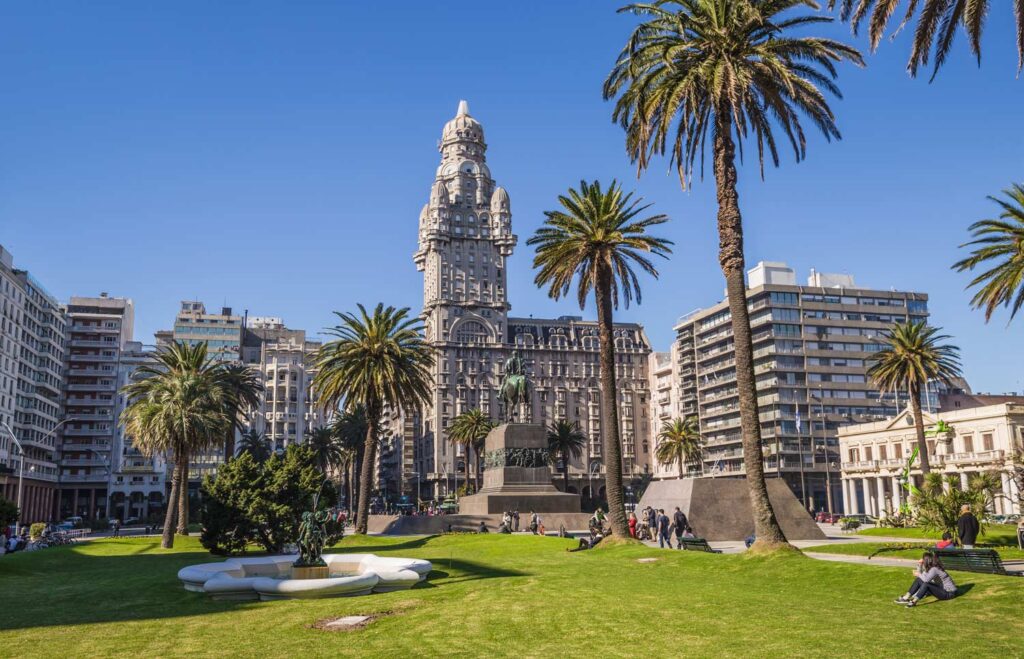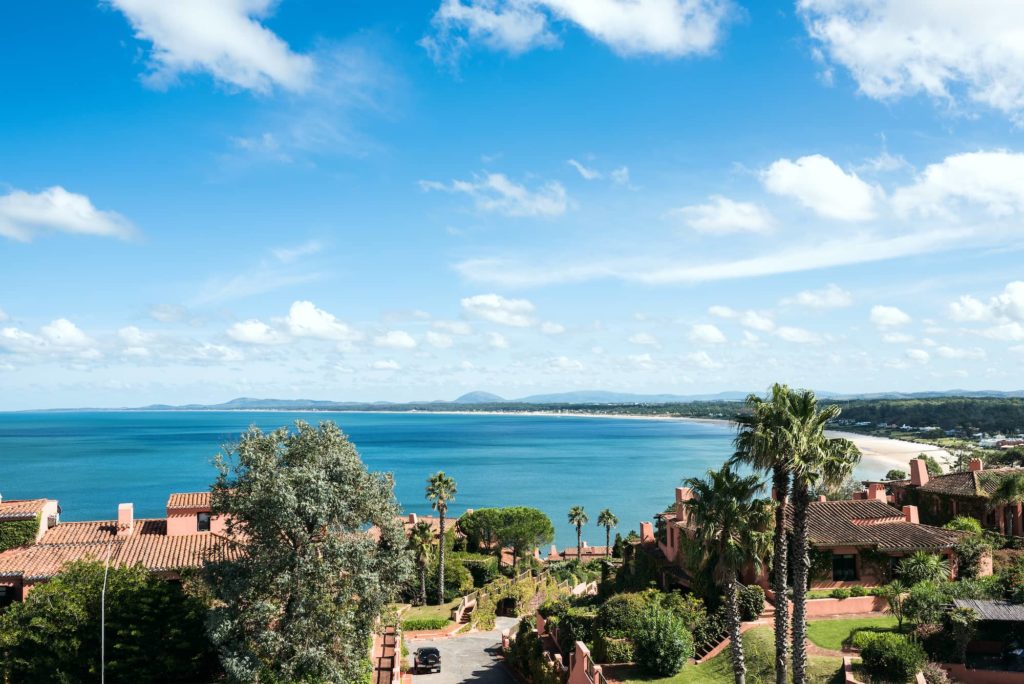Welcome to a whimsical escapade to beautiful Uruguay. Get ready for a journey to a country full of rich history, enchanting landscapes and a variety of cultures just waiting to be discovered. In this blog post, we will embark on an entertaining journey through the most important facts about Uruguay, its fascinating geography, intriguing history, diverse people, vibrant culture, breathtaking nature, well-structured administration and thriving economy. So without further ado, let us dive into the magical realm of Uruguay.

1. Fast Facts
Let us begin our exploration with some fascinating fast facts about Uruguay. Nestled between Brazil and Argentina, this small country is often overshadowed by its neighboring giants, but it holds an allure of its own. Uruguay stretches across an area of 176,215 square kilometers and boasts a population of approximately 3.5 million resilient Uruguayans. The capital city, Montevideo, is a bustling metropolis that embodies the spirit and soul of the country.
Uruguayans, or Charrúas as they fondly call themselves, enjoy a high standard of living and literacy rate, making it one of the most developed nations in South America. The official language is Spanish, and the currency is the Uruguayan peso. With its mild climate and friendly inhabitants, Uruguay beckons visitors with open arms to explore its hidden treasures.
2. Geography
This splendid country boasts a variety of landscapes, ranging from pristine beaches to rolling hills and fertile plains. To the east, the Atlantic Ocean tempts visitors with miles of beautiful beaches, while the west is adorned with verdant rolling hills and lush grasslands, perfect for grazing livestock.
Located entirely within the Southern Hemisphere, Uruguay’s climate is predominantly temperate, featuring warm summers and mild winters. The country is blessed with an extensive river system, including the mighty Uruguay River, which forms a natural boundary with Argentina.
3. History
The annals of Uruguayan history are a fascinating tapestry of conquests, colonization, and struggles for independence. From ancient times, the land of what is now Uruguay was inhabited by indigenous tribes, most notably the Charrúa, who fiercely defended their territories against outside forces. However, in the 16th century, European colonizers set their sights on these uncharted lands.
Spanish explorers arrived on Uruguay’s shores in the early 16th century, claiming the region for the Spanish Crown. Over the following centuries, Uruguay became a battleground for European powers vying for control, leading to a tumultuous history of wars, invasions, and political strife. After a hard-fought struggle, Uruguay gained its independence from Spain in 1828, with its first constitution establishing a democratic system of government.
4. People
Uruguayans are a vibrant and diverse people, blending their European, African, and indigenous heritage to create a unique cultural mosaic. Known for their warm and welcoming nature, Uruguayans embody a strong sense of community and pride in their country.
The population of Uruguay is predominantly of European descent, with Spanish and Italian heritage being the most influential. However, African and indigenous communities have also shaped the cultural fabric of the nation, adding a rich fusion of traditions and customs. Uruguayans are renowned for their love of football, or soccer as it is known in other parts of the world, which unifies the nation and ignites a collective passion during matches.
5. Culture
Delve into the vibrant culture of Uruguay and be captivated by its harmonious blend of traditions, arts, and gastronomy. The country’s cultural landscape is a reflection of its diverse heritage, with influences from Spain, Italy, Africa, and indigenous communities.
Uruguayans take immense pride in their cultural achievements, particularly in the realm of literature, art, and music. The birthplace of notable writers such as Eduardo Galeano and Mario Benedetti, Uruguay has a thriving literary scene that manifests itself in vibrant book fairs and literary festivals. The arts flourish in the streets of Montevideo, with colorful murals adorning the city’s buildings and a plethora of galleries showcasing local and international talents.
6. Nature
Uruguay’s awe-inspiring nature beckons adventurers and nature enthusiasts alike. With its diverse ecosystems and protected areas, the country is a haven for wildlife and offers an abundance of opportunities for outdoor exploration.
The stunning coastline boasts pristine beaches, where visitors can bask in the sun or take a refreshing dip in the waters of the Atlantic Ocean. For those seeking a more adventurous experience, the towering sand dunes of Cabo Polonio provide a thrilling escape into nature, while the enchanting wetlands of Bañados del Este and Laguna de Rocha offer a glimpse of Uruguay’s ecological treasures.
7. Government
Uruguay’s governance structure is an example of stability and democracy in South America. The country operates under a constitutional republic system, with a president serving as both the head of state and government. The political landscape is characterized by a multi-party system, ensuring a healthy representation of diverse voices and opinions.
Uruguay is internationally recognized for its progressive social policies, such as the legalization of same-sex marriage and the decriminalization of abortion. These forward-thinking measures have earned the country a reputation as a champion of human rights and equality.
8. Economy
The Uruguayan economy is a testament to the country’s resilience and adaptability. Once heavily reliant on agriculture and livestock industries, Uruguay has diversified and thrived in recent decades. Today, the nation’s economy is a balanced blend of agriculture, manufacturing, services, and tourism.
Agriculture remains a significant component of the economy, with Uruguay being one of the world’s largest exporters of beef. Additionally, the country’s manufacturing sector has experienced steady growth, particularly in the areas of textiles, electrical machinery, and automotive parts. Uruguay’s commitment to sustainable practices has also attracted renewable energy investments, contributing to its growing reputation as an environmentally conscious nation.
Conclusion
As our enchanting journey through Uruguay draws to a close, we cannot help but be captivated by the country’s magical allure. From its diverse landscapes and rich history to its vibrant culture and remarkable people, Uruguay is a destination that leaves an indelible mark on the soul. The progressive government and thriving economy are testaments to the nation’s unwavering determination to ensure a bright future for its people.
Whether you are looking for breathtaking natural beauty, cultural treasures, or a taste of South American charm, Uruguay awaits you with open arms. Prepare to be enchanted, to lose yourself in its alluring landscapes, and to create memories that will last a lifetime.

